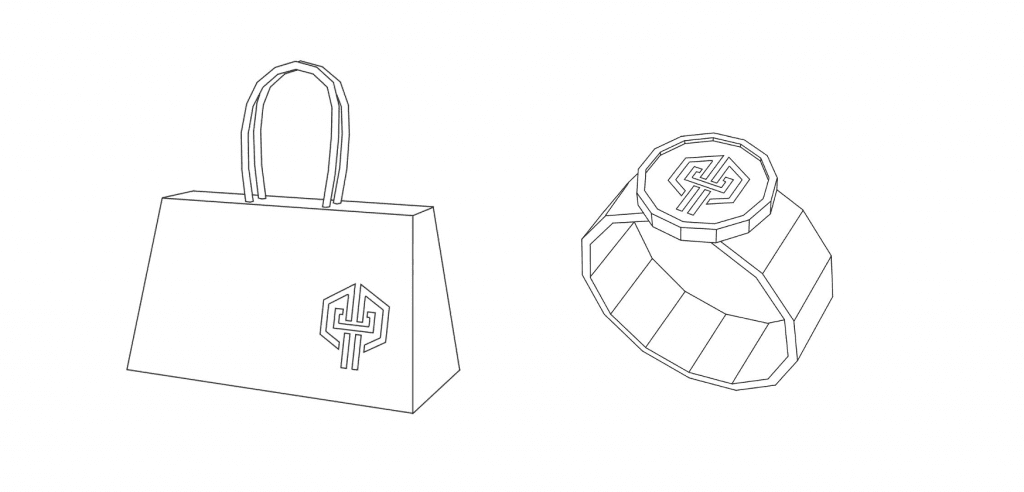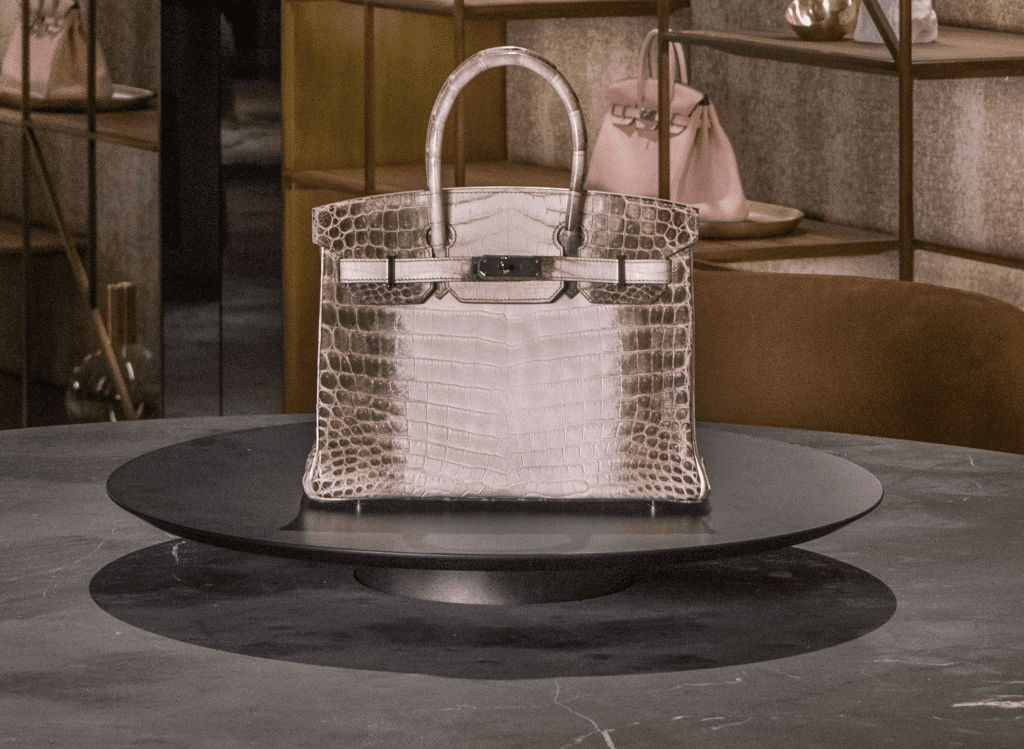TFL EXCLUSIVE – The metaverse may have a striking new occupant if a handful of recently-filed trademark applications are any indication. A number of new filings with the U.S. Patent and Trademark Office seem to indicate that Privé Porter is quietly preparing to enter into the metaverse and might be bringing its collection of hard-to-get handbags and luxury watches with it in what could prove to be a controversial effort to meet deep-pocketed – and crypto-happy – luxury consumers where they are, and beat brands, other resellers, and even some of the biggest players in the auction world into the virtual goods space in the process.
Having made its name by connecting luxury collectors with Hermès’ wildly coveted handbags (i.e., $12,000-plus Birkin and Kelly bags) and difficult to acquire timepieces, such as Rolex Daytonas, which Privé Porter’s clients gladly pay a mark up for in order to avoid the hoops that these brands make consumers jump through in order to get their most longed-for offerings, Privé Porter seems to have set its sights on being an early-mover when it comes to offering up luxury goods in the burgeoning virtual world.
Two trademark applications for registration, which were filed by counsel for Miami-based Privé Porter on March 11, cite uses of the Privé Porter name and its stylized key logo, respectively, on “downloadable image files containing and serving as title to designer handbags and designer watches authenticated by non-fungible tokens” (Class 9); and “online retail store services featuring virtual goods, namely designer handbags and designer watches for use in online virtual worlds,” as well as the “provision of an online marketplace for buyers, sellers and auctioning of downloadable digital designer handbags and designer watches authenticated by non-fungible tokens” (Class 35).
The language of the intent-to-use applications indicates that Privé Porter is looking to offer up non-fungible tokens (“NFTs”) that are tied to – and serve as title for – tangible luxury goods, namely, “designer handbags and watches,” and that also come with images of those tangible luxury goods. Beyond these uses, the applications suggest Privé Porter is also planning to offer up “downloadable digital designer handbags and designer watches” by way of an online marketplace (as is the customary method for acquiring NFTs), as well as via auction.
Should Privé Porter introduce an experience in which it auctions off its coveted assets in the metaverse (i.e., on a metaverse platform), it would be an ambitious move that could potentially pit it against auction titans like Christie’s and Sotheby’s , which have readily embraced the market for digital assets, but have not actually brought a like-for-like equivalent of their “real” world auction activities to the metaverse. (It is worth noting that while Sotheby’s launched a replica of its London headquarters on the Ethereum-hosted virtual reality platform Decentraland last year, the virtual outpost acts exclusively as a gallery and not an auction house. If Privé Porter were to spearhead a metaverse-specific auction experience, it would also not be the first time it got a leg up in the luxury space thanks to a nascent platform; Privé Porter built its business by using Instagram as a retail platform back in 2013 and has since done roughly $120 million in business without an e-commerce site.)
Two additional intent-to-use applications that were filed on March 14 provide greater insight into Privé Porter’s endeavors, stating that the company plans to use the designs of a handbag and a watch in connection with “downloadable virtual goods, namely, computer programs featuring watches for use in online virtual worlds” in Class 9.

Interestingly, the two virtual goods marks do not consist of the design of a Birkin bag, Daytona watch, or any other famed handbag or timepiece. Instead, they come in the form of a pared-back purse and watch, both of which are branded with a single logo: the Privé Porter key. The handbag mark consists of “a three-dimensional trapezoid with two half oval lines with a partially complete rectangle in the center and mirrored vertical bars below the rectangle,” whereas the watch mark is described as a “three-dimensional tridecagon bracelet with a smaller tridecagon on top and a partially complete rectangle in the center and mirrored vertical bars below the rectangle.”
A read between the lines suggests that this could be an attempt by Privé Porter to close the loop and offer up digital assets that the buyers of its physical goods, including real Birkin bags and Rolex watches, can flaunt in the metaverse without landing Privé Porter on the receiving end of trademark infringement from these brands. After all, the potential for real world litigation centering on virtual goods is hardly a mere hypothetical. Control-happy brands have proven to be litigious when it comes to unauthorized distribution of their offerings – both in the “real” world (the enduring Chanel v. The RealReal case comes to mind) and in the virtual one. While Hermès has not made any moves of its own in the metaverse (yet), it is in the midst of a trademark infringement and dilution case, which it filed against the creator of Birkin-resembling NFTs called MetaBirkins.
Meanwhile, Nike sued StockX on February 3 for trademark infringement and dilution, as well as unfair competition, in connection with the reseller’s offering up of NFTs tied to images and physical versions of Nike footwear, complete with “inflated prices” and “murky terms of purchase and ownership.”
On the other hand, the move by Privé Porter to file applications for registration for a virtual bag and watch branded with its own logo very well could mean that it is looking to move beyond – or to supplement – others’ offerings with its own collection of PrivéPorter luxury goods and virtual lookalikes or “digital twins” of these tangible goods for consumers to show off in the virtual world, such as in Decentraland or on other metaverse platforms. This would, of course, be noteworthy because as of now, while handbags from brands like Gucci have infiltrated Roblox, for instance, purses and watches are not available on Decentraland.
It is too soon to tell what the specific outcome will be, but regardless, a move by Privé Porter to bring ultra-luxury offerings into the metaverse makes sense, as it would not be surprising if a fair share of its existing customers fall within the camp of individuals amassing fortunes in the crypto space and looking to snap up virtual assets to offload some of their Ether-based earnings.











